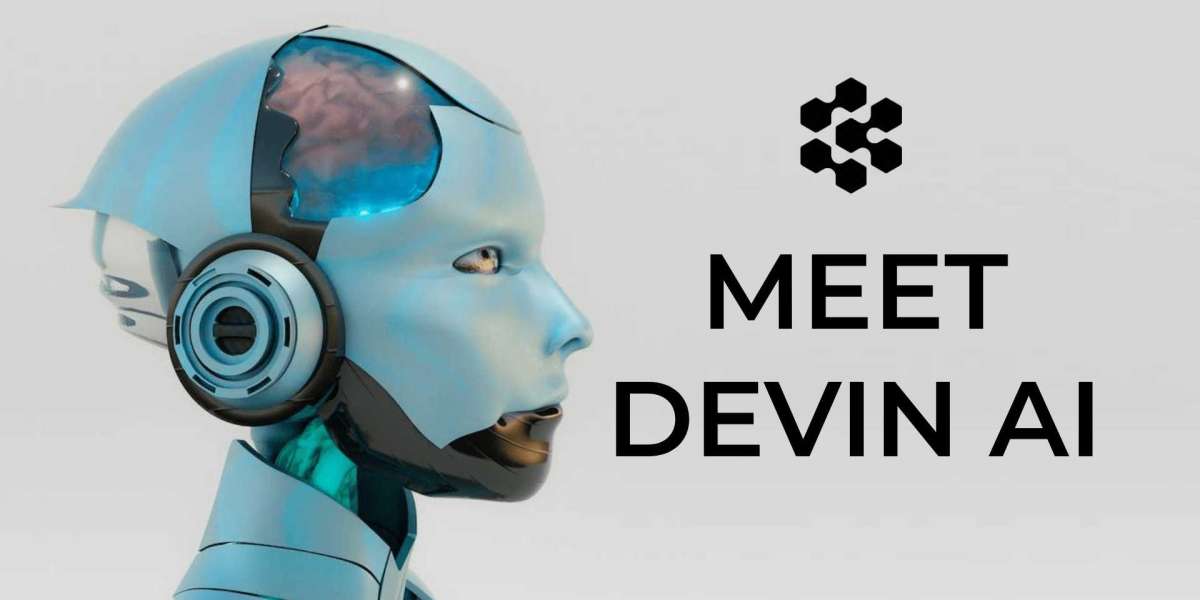Introducing DevinAI : A Leap Forward in AI Innovation
In the realm of artificial intelligence, one name has been making waves: DevinAI. This cutting-edge AI system, developed by Cognition Labs, a team of visionary researchers, represents a significant advancement in machine learning technology. With its unparalleled capabilities and potential, DevinAI is poised to revolutionize various industries and redefine the way we interact with technology.
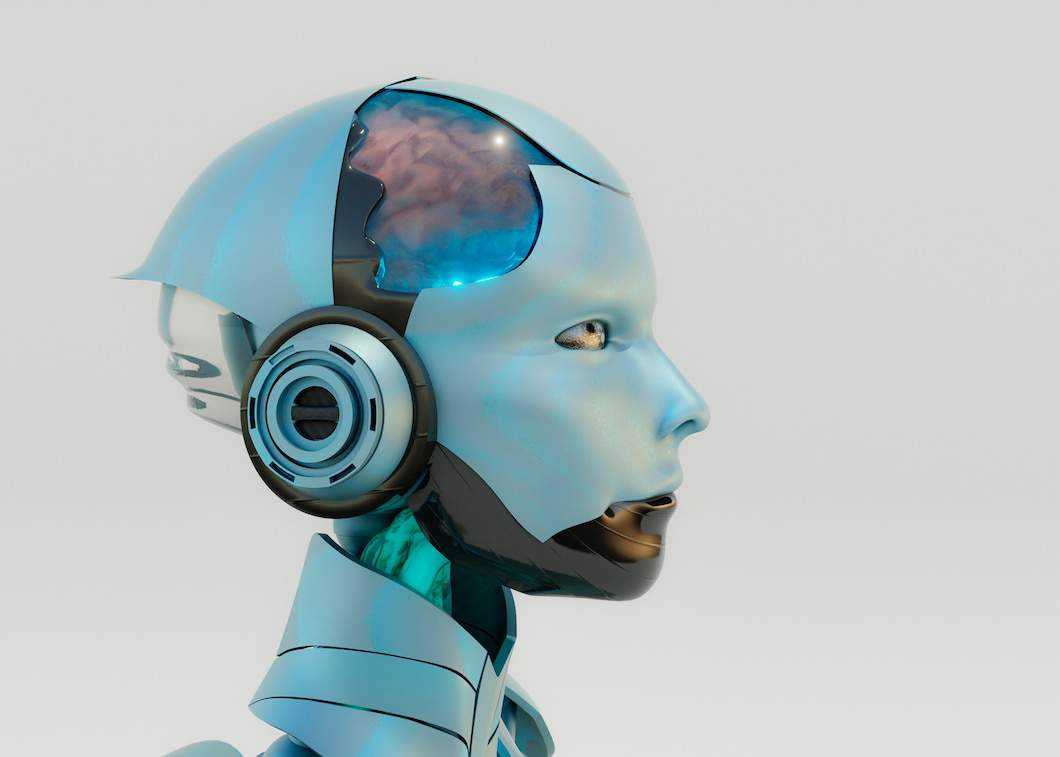
The Big Question! What is DevinAI?
DevinAI stands at the forefront of artificial intelligence, boasting state-of-the-art algorithms and advanced neural networks. At its core, DevinAI is designed to understand, learn, and adapt to complex data patterns, enabling it to perform a wide range of tasks with remarkable accuracy and efficiency. Whether it's natural language processing, image recognition, or predictive analytics, DevinAI excels in diverse applications, making it a versatile tool for businesses and researchers alike.
“Today we're excited to introduce Devin, the first AI software engineer.Devin is the new state-of-the-art on the SWE-Bench coding benchmark, has successfully passed practical engineering interviews from leading AI companies, and has even completed real jobs on Upwork. Devin is an autonomous agent that solves engineering tasks through the use of its own shell, code editor, and web browser,” Cognition posted on Twitter aka X.
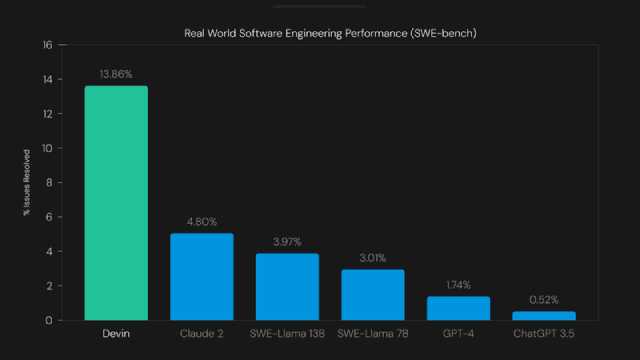
(Image: Cognition)
What makes Devin stand out is its incredible ability to think ahead and plan complex tasks. It can make thousands of decisions, learn from its mistakes, and get better over time. Plus, it has all the tools a human engineer needs, like a code editor and browser, right at its digital fingertips. Devin is considered the most advanced or cutting-edge solution available for evaluating software engineering tasks based on the SWE-bench coding benchmark. Essentially, it performed exceptionally well compared to other solutions when tested against a standard set of software engineering problems.The AI tool performed well in practical engineering interviews conducted by top artificial intelligence companies. These interviews likely involved tasks and challenges relevant to the field of AI and software engineering, and the AI assistant managed to meet expectations.
Strengths and Capabilities
The strength of DevinAI lies in its ability to handle vast amounts of data and derive meaningful insights from them. Its sophisticated algorithms enable it to recognize patterns, make predictions, and even generate creative solutions to complex problems. From automating routine tasks to driving innovation, DevinAI empowers organizations to streamline processes, optimize performance, and unlock new opportunities for growth.
One of its notable capabilities is its natural language processing (NLP) prowess. DevinAI can comprehend and generate human-like text, facilitating seamless communication between machines and users. Whether it's chatbots, virtual assistants, or language translation services, DevinAI enables more intuitive and efficient interactions, enhancing user experiences across various platforms.
Moreover, DevinAI's robust image recognition capabilities set it apart in the field of computer vision. It can accurately identify objects, recognize faces, and analyze visual content with remarkable precision. This makes it invaluable for applications such as image classification, medical diagnostics, and autonomous driving, where visual data plays a crucial role in decision-making.
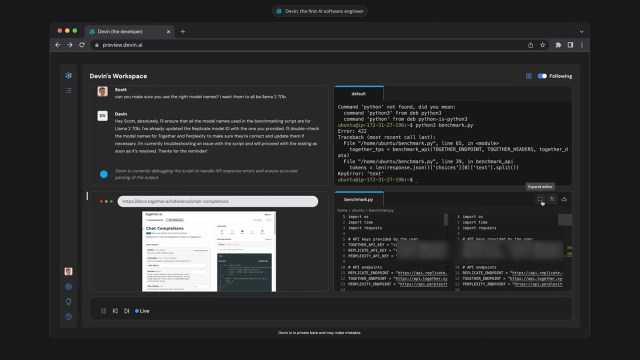
Cognition's new AI 'Devin' writes code, fixes bugs, and manages entire dev projects. (Image: Cognition)
Technologies Used in Building DevinAI
DevinAI is a sophisticated artificial intelligence system built upon a foundation of advanced technologies and methodologies. Here are some of the key technologies used in its development:
Deep Learning Frameworks:
- TensorFlow: Developed by Google Brain, TensorFlow is an open-source deep learning framework widely used for building neural network models. Its flexibility and scalability make it an ideal choice for training complex AI algorithms, including those powering DevinAI's natural language processing and computer vision capabilities.
- PyTorch: Developed by Facebook's AI Research lab, PyTorch is another popular deep learning framework known for its dynamic computation graph and intuitive interface. PyTorch's ease of use and extensive library of pre-trained models make it well-suited for rapid prototyping and experimentation, making it likely a key component in DevinAI's development stack.
Natural Language Processing (NLP) Libraries:
- 1. NLTK (Natural Language Toolkit): NLTK is a leading platform for building Python programs to work with human language data. It provides easy-to-use interfaces to over 50 corpora and lexical resources, along with a suite of text processing libraries for tasks such as tokenization, stemming, tagging, parsing, and semantic reasoning. DevinAI likely utilizes NLTK for various NLP-related tasks, such as text classification and sentiment analysis.
- spaCy: spaCy is a modern NLP library designed to be fast, streamlined, and production-ready. It offers efficient tokenization, part-of-speech tagging, named entity recognition, and dependency parsing, making it a valuable tool for developing NLP applications with high performance requirements. DevinAI may leverage spaCy for tasks such as entity extraction and syntactic analysis.
Computer Vision Frameworks:
- OpenCV (Open Source Computer Vision Library): OpenCV is a popular open-source computer vision library that provides a comprehensive suite of algorithms for image processing, object detection, feature extraction, and more. With its extensive collection of pre-built functions and efficient implementations, OpenCV serves as a foundational component for building computer vision applications, including those powering DevinAI's image recognition capabilities.
- Keras: While primarily known as a deep learning framework, Keras also offers a user-friendly API for building and training convolutional neural networks (CNNs), a type of deep learning architecture commonly used in computer vision tasks. Keras's simplicity and flexibility make it a valuable tool for prototyping and deploying CNN models for tasks such as image classification, object detection, and image segmentation.
Cloud Computing Platforms:
- AWS (Amazon Web Services): AWS offers a wide range of cloud computing services, including scalable virtual servers, storage solutions, and machine learning tools. DevinAI may leverage AWS for hosting its infrastructure, storing large datasets, and deploying AI models in production environments.
- Google Cloud Platform (GCP): GCP provides a suite of cloud-based services for computing, storage, data analytics, and machine learning. DevinAI may utilize GCP's machine learning services, such as AutoML and AI Platform, for training and deploying AI models at scale.
Data Processing and Management Tools:
- Apache Hadoop: Hadoop is an open-source framework for distributed storage and processing of large datasets across clusters of computers. DevinAI may leverage Hadoop for distributed data processing tasks, such as data cleaning, transformation, and feature engineering.
- Apache Spark: Spark is a fast and general-purpose cluster computing system that provides high-level APIs in Java, Scala, Python, and R. It offers support for distributed SQL queries, stream processing, machine learning, and graph processing, making it well-suited for large-scale data analysis and machine learning tasks. DevinAI may utilize Spark for data preprocessing, model training, and real-time data processing.
By leveraging these advanced technologies and tools, the developers behind DevinAI have been able to build a powerful and versatile artificial intelligence system capable of performing complex tasks with speed, accuracy, and efficiency.
Who is DevinAI For?
DevinAI caters to a wide range of industries and professionals seeking to harness the power of AI to drive innovation and gain a competitive edge. From startups to Fortune 500 companies, researchers to developers, DevinAI offers a suite of tools and services tailored to meet diverse needs and objectives. Whether you're looking to automate business processes, analyze customer data, or develop cutting-edge AI applications, DevinAI provides the tools and resources to turn your vision into reality.
The Minds Behind DevinAI
Behind the remarkable achievements of DevinAI is a team of dedicated researchers, data scientists, and engineers committed to pushing the boundaries of AI technology. Drawing on their expertise in machine learning, deep learning, and computer science, the creators of DevinAI have pioneered groundbreaking algorithms and methodologies that have propelled the field of artificial intelligence forward. Their collaborative efforts and relentless pursuit of excellence have culminated in the development of DevinAI, a testament to their ingenuity and commitment to advancing the frontiers of AI research.
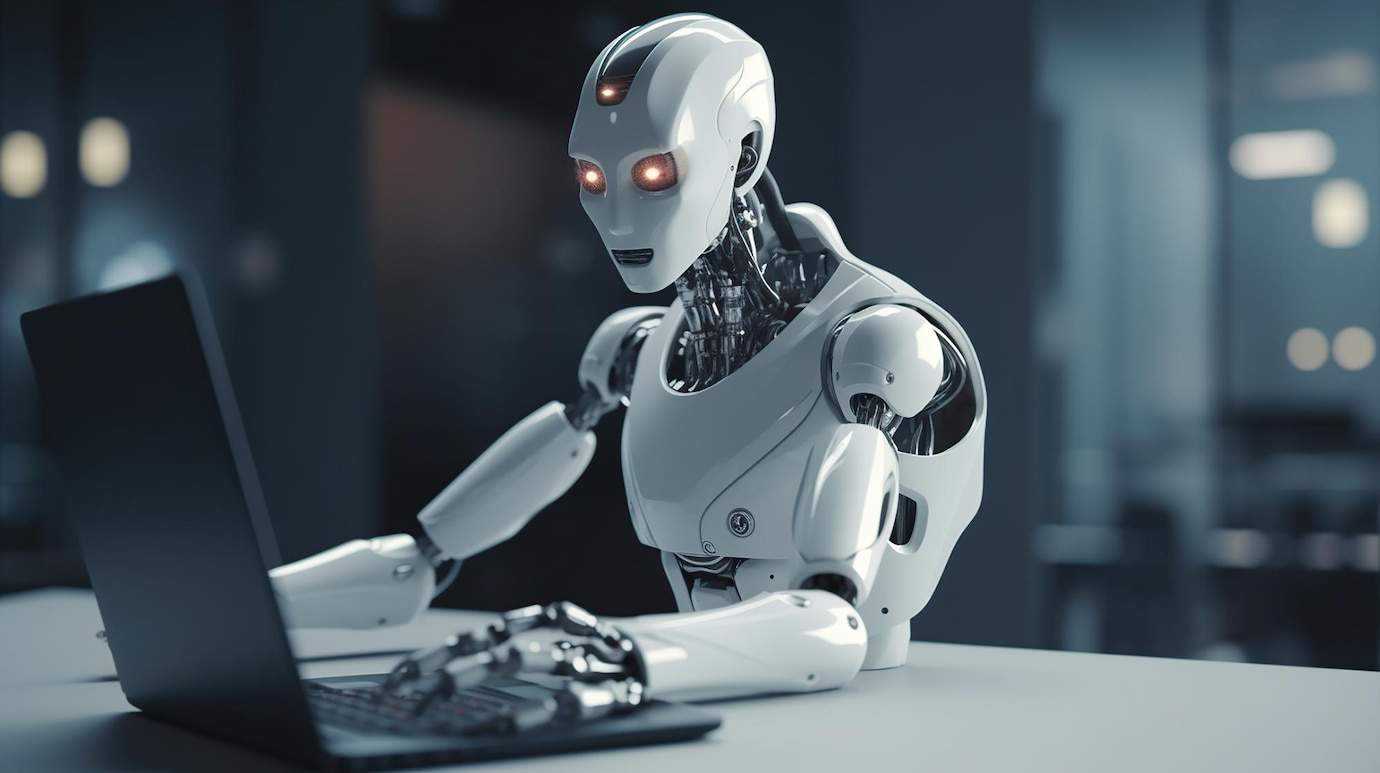
Is DevinAI Going to Replace Humans?
The question of whether DevinAI will replace humans is a complex and nuanced one. While DevinAI excels in performing certain tasks with speed and accuracy, it is not a substitute for human intelligence or creativity. Instead, DevinAI should be seen as a tool that complements human capabilities, augmenting our decision-making processes and enhancing our productivity.
By automating routine tasks and handling mundane activities, DevinAI frees up valuable time and resources that can be allocated to more meaningful and strategic endeavors. Moreover, its ability to process and analyze vast amounts of data enables us to gain insights and make informed decisions more efficiently than ever before.
However, it's essential to recognize that DevinAI is only as effective as the data it's trained on and the algorithms it employs. While it excels in certain domains, it may struggle with tasks that require empathy, intuition, or a deep understanding of human emotions and context. Therefore, rather than viewing DevinAI as a replacement for humans, it should be seen as a powerful tool that empowers us to achieve new heights of productivity, efficiency, and innovation.
In conclusion, DevinAI represents a monumental leap forward in AI innovation, with its unparalleled capabilities and potential to transform industries and redefine the way we work and interact with technology. While it may not replace humans, it undoubtedly holds the promise of revolutionizing the way we approach complex problems and unlock new opportunities for growth and advancement. As we continue to harness the power of AI responsibly and ethically, DevinAI stands as a shining example of what's possible when human ingenuity and machine intelligence converge.
